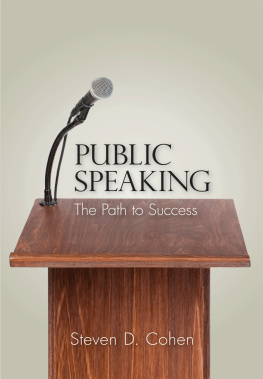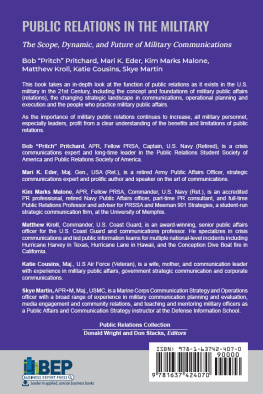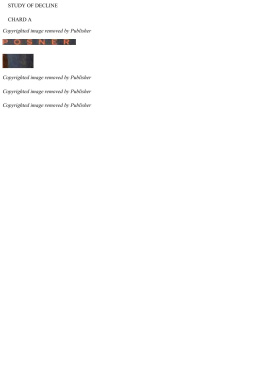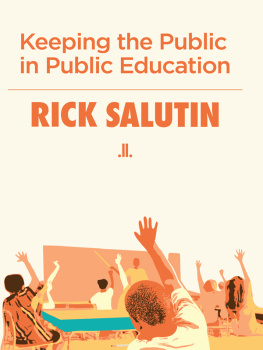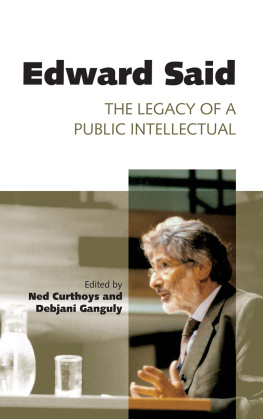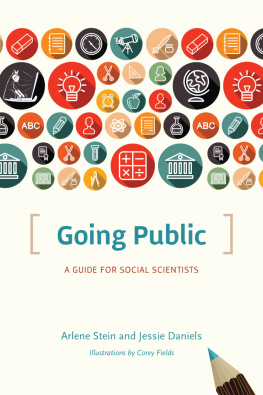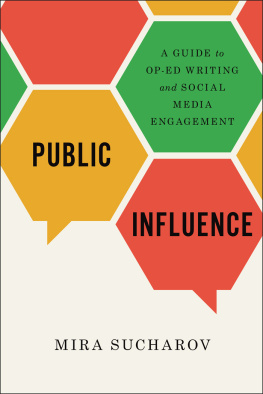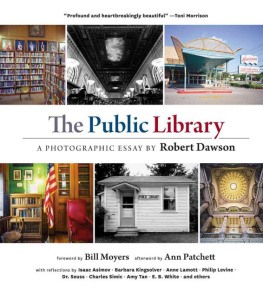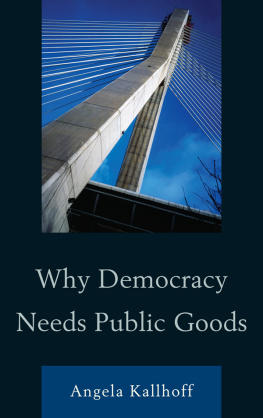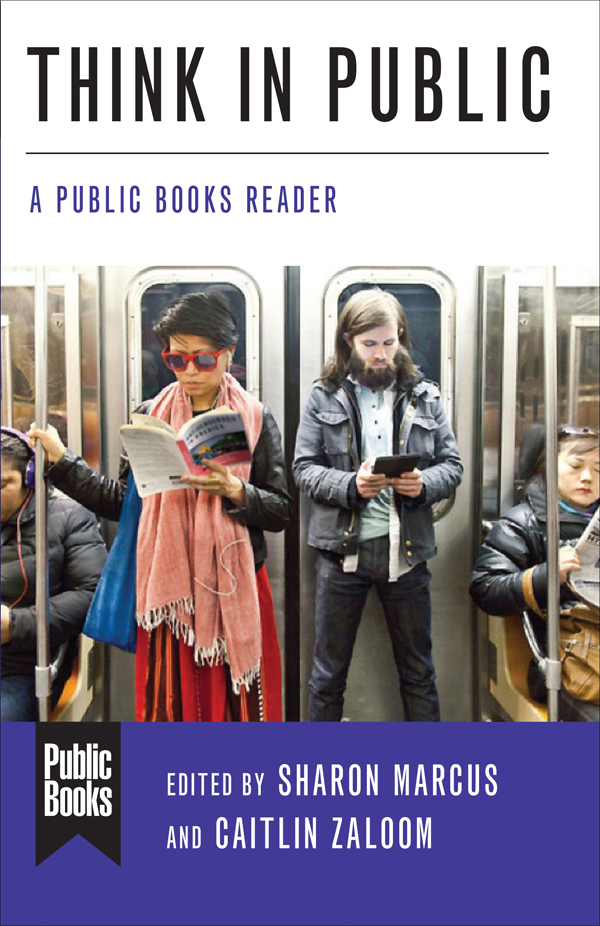Contents
Guide
Pagebreaks of the print version
THINK IN PUBLIC
Public Books Series
Public Books Series
Sharon Marcus and Caitlin Zaloom, Editors
Founded in 2012, Public Books is required reading for anyone interested in what scholars have to say about contemporary culture, politics, and society. The monographs, anthologies, surveys, and experimental formats featured in this series translate the online experience of intellectual creativity and community into the physical world of print. Through writing that exemplifies the magazines commitment to expertise, accessibility, and diversity, the Public Books Series aims to break down barriers between the academy and the public in order to make the life of the mind a public good.
Think in Public: A Public Books Reader , edited by Sharon Marcus and Caitlin Zaloom, 2019
Antidemocracy in America: Truth, Power, and the Republic at Risk , edited by Eric Klinenberg, Caitlin Zaloom, and Sharon Marcus, 2019
THINK IN PUBLIC
A PUBLIC BOOKS READER
Edited by
SHARON MARCUS
CAITLIN ZALOOM
COLUMBIA UNIVERSITY PRESS
NEW YORK

Columbia University Press
Publishers Since 1893
New York Chichester, West Sussex
cup.columbia.edu
Copyright 2019 Caitlin Zaloom and Sharon Marcus
All rights reserved
E-ISBN 978-0-231-54871-7
Library of Congress Cataloging-in-Publication Data
Names: Marcus, Sharon, 1966 editor of compilation. | Zaloom, Caitlin, editor of compilation.
Title: Think in public : a Public books reader / edited by Sharon Marcus and Caitlin Zaloom.
Other titles: Public books (Online journal)
Description: New York : Columbia University Press, [2019] | Series: Public books series | Includes bibliographical references and index.
Identifiers: LCCN 2018054003 (print) | LCCN 2019007204 (ebook) | ISBN 9780231190084 (cloth : alk. paper) | ISBN 9780231190091 (pbk. : alk. paper)
Classification: LCC AC5 (ebook) | LCC AC5 .T355 2019 (print) | DDC 081dc23
LC record available at https://lccn.loc.gov/2018054003
A Columbia University Press E-book.
CUP would be pleased to hear about your reading experience with this e-book at .
Cover design: Julia Kushnirsky
Cover image: Ourit Ben-Haim
Book design: Lisa Hamm
CONTENTS
SHARON MARCUS AND CAITLIN ZALOOM
FRED TURNER
LILLY IRANI
STACEY BALKAN
J. R. McNEILL
IMANI PERRY
FRANCES NEGR N-MUNTANER
N. D. B. CONNOLLY
MATTHEW ENGELKE
PHILIP GORSKI
KIM PHILLIPS-FEIN
MAX HOLLERAN
NAJWA AL-QATTAN
JEREMY ADELMAN
DESTIN JENKINS
ANDREW J. PERRIN
KIERAN SETIYA
SHANNON MATTERN
B. R. COHEN
SUZY HANSEN
JAMES VERNON
SALAMISHAH TILLET
MATTHEW CLAIR
GAYATRI CHAKRAVORTY SPIVAK
JOHN PLOTZ
CHRISTOPHER SCHABERG
ELI ROSENBLATT
REBECCA L. WALKOWITZ
SHEILA LIMING
SIMON DURING
NICOLE R. FLEETWOOD
REBECCA FALKOFF
HARUO SHIRANE
KARL ASHOKA BRITTO
JUDITH BUTLER
JOSEPH JONGHYUN JEON
SALAMISHAH TILLET
MARAH GUBAR
ANNE E. FERNALD
NAMWALI SERPELL
TESS McNULTY
MARK McGURL
NICHOLAS DAMES
JAN MIESZKOWSKI
KAREN DUNAK
DAEGAN MILLER
SHARON MARCUS AND CAITLIN ZALOOM
I n an age of ignorance, how do we learn to think? Who protects old ideas from extinction? How do new ideas emerge and take flight?
One short answer to all these questions: books. Thanks to their durability as physical objects, books connect people and ideas across space and time. Books stimulate and preserve inconvenient truths and inspire new ways of thinking. At their best, books require slow research, careful argument, and immersed engagement. The independent, the unorthodox, and the solitary have long turned to books to fuel their imaginations.
Another short answer: universities. Universities preserve old insights and foster new ones. They are social laboratories where students experiment with politics and expression. At their best, universities gather people from around the world and encourage them to challenge received wisdom, advance knowledge, and overturn established hierarchies.
Our answer is Public Books . A digital magazine that unites the best of the university with the openness of the internet, Public Books celebrates the power of books to spread research, pioneer new ways of thinking, and introduce ideas into our lives. Our site puts readers and writers in deep conversation with books past and presentserious books, popular books, good books, and even bad books that can teach us something important when examined seriously.
Public Books is a gathering place for those who seek, as our motto and the title of this collection put it, to think in public. Our contributors know their subjects deeply and use their knowledge to wrestle with complex problems, confront urgent issues, and offer insight into problems old and new. Our readers value knowledge and arguments that challenge us to think differently.
Today we think of a scholar as an authoritative specialist who teaches and writes. But the original meaning of scholar was a student: someone who learns and reads. Public Books exists to nurture public scholars: professors who want to speak to the broadest possible audience and readers who want to learn more about ideas both timeless and timely. Our contributors are public scholarsand our readers are, too.

We founded Public Books in 2012 on these precepts: That publics are thirsty for knowledge. That those who devote their lives to mastering their subjects need to be heard. That expertise and authority are not confined to white, straight, cisgender men. That it is desirable for academics to speak to a broader audience and exciting for readers outside the academy to debate what academics have to say. Most importantly, that boundaries between disciplines and ways of knowing deserve to be bridgedand barriers between the academy and the public deserve to be broken.
Academia, for too long, has excelled at building walls: walls between colleagues and specialties, walls between the corridors of research and the world outside. And now, to the benefit of public scholars and ideas, these walls are tumbling down. Whole generations of graduate students, unable to secure employment in the ivory tower, are flooding the public square. Union drives have humanists uniting with ethnographers and lab scientists. Competing universities join forces to fend off attacks by partisan politicians who want to defund knowledge. All the while, young people fighting for commonsense gun laws and humane immigration policies find themselves embracing theories of intersection and solidarity. All signs point toward a future for knowledge based on unification, not division.
Its time to embrace this new openness, to look broadly for inspiration and interconnection, to speak out widely and wisely.
Academics can no longer stay in cloistered enclaves, reassuring themselves that universities and colleges will always provide a secure oasis for books and ideas, for informed answers and clear thinking. We cannot sit back, assuming that the value of knowledge speaks for itself and that we can focus exclusively on dissertations, conferences, and publications geared toward specialists in our subfields.


